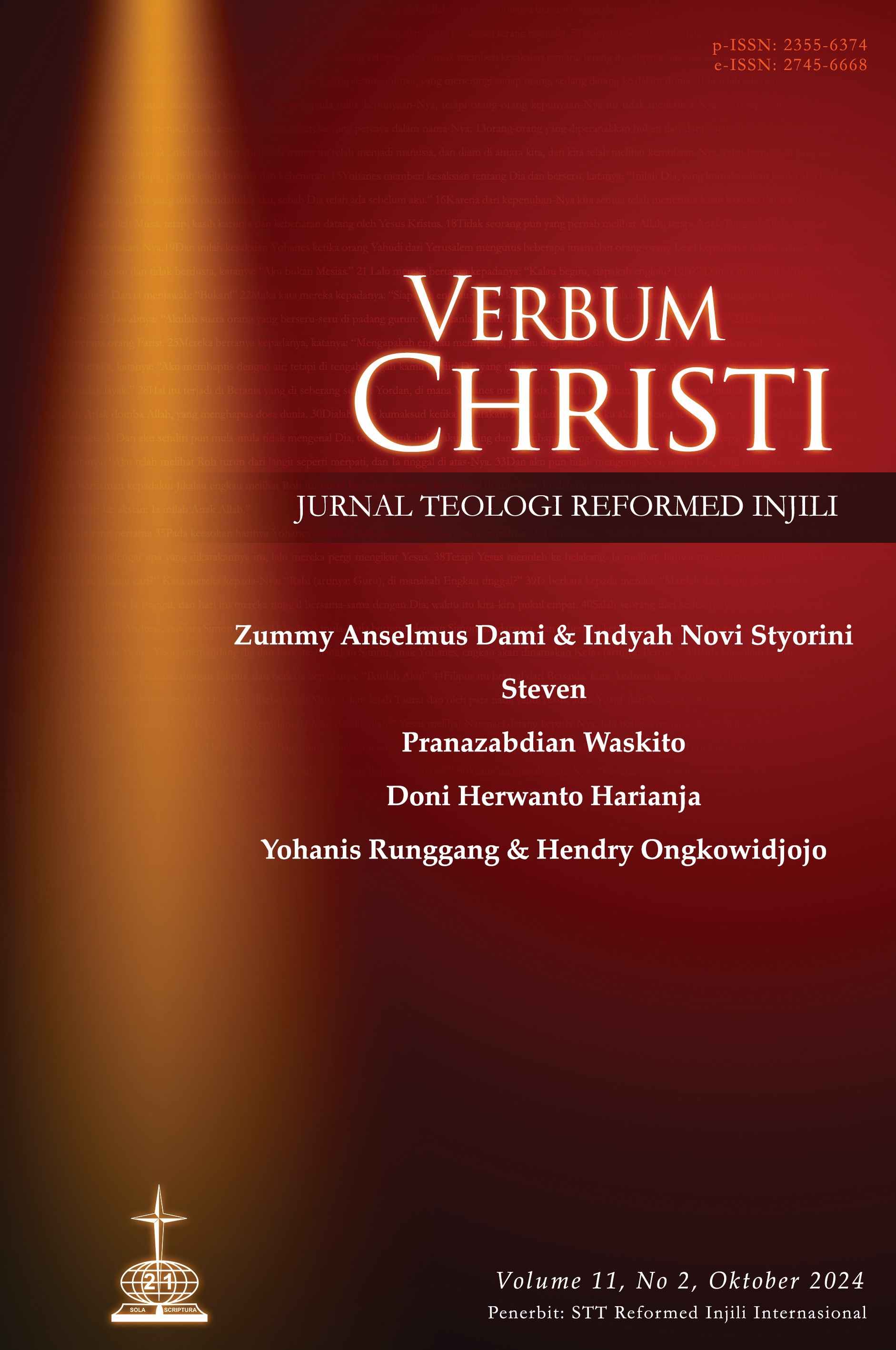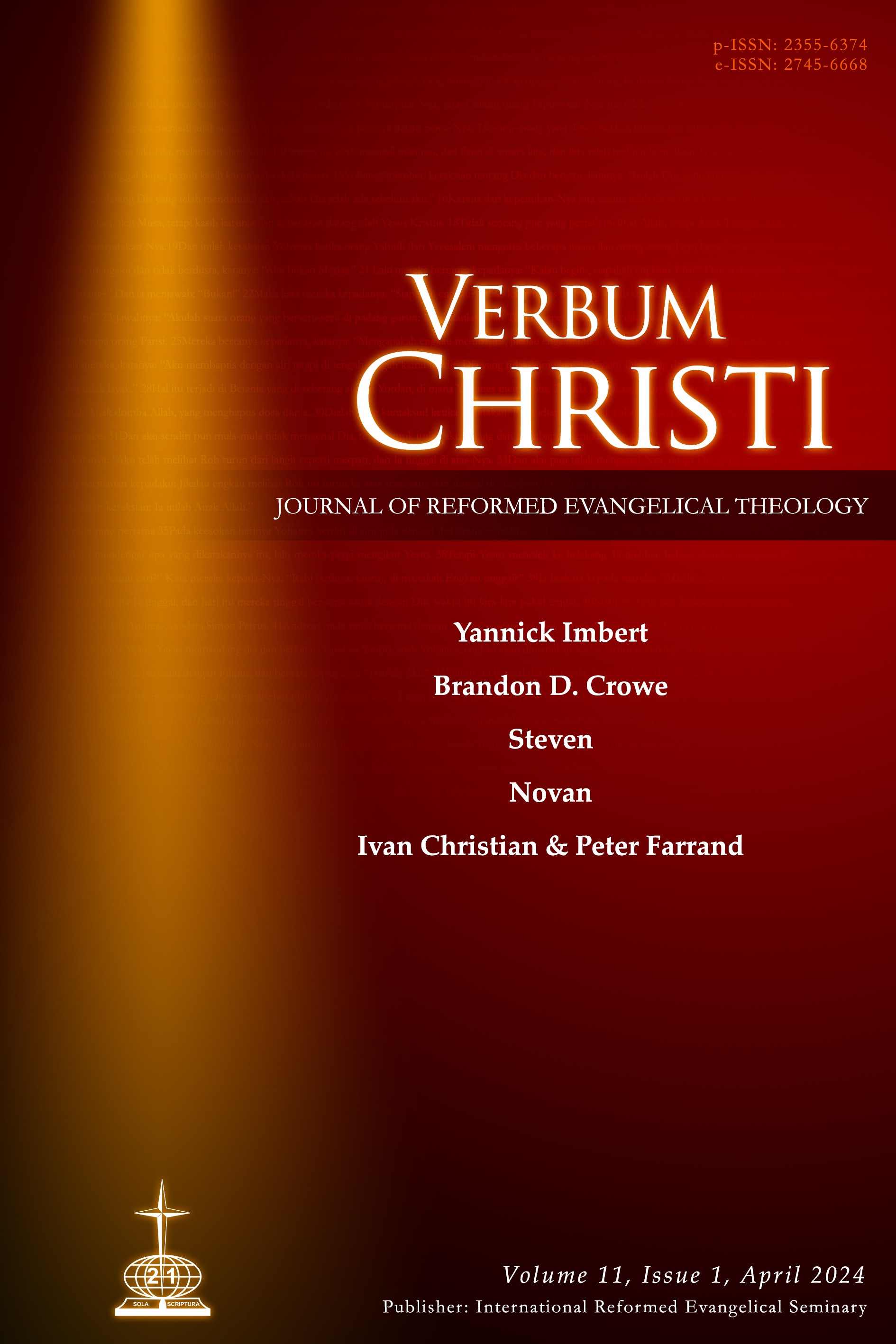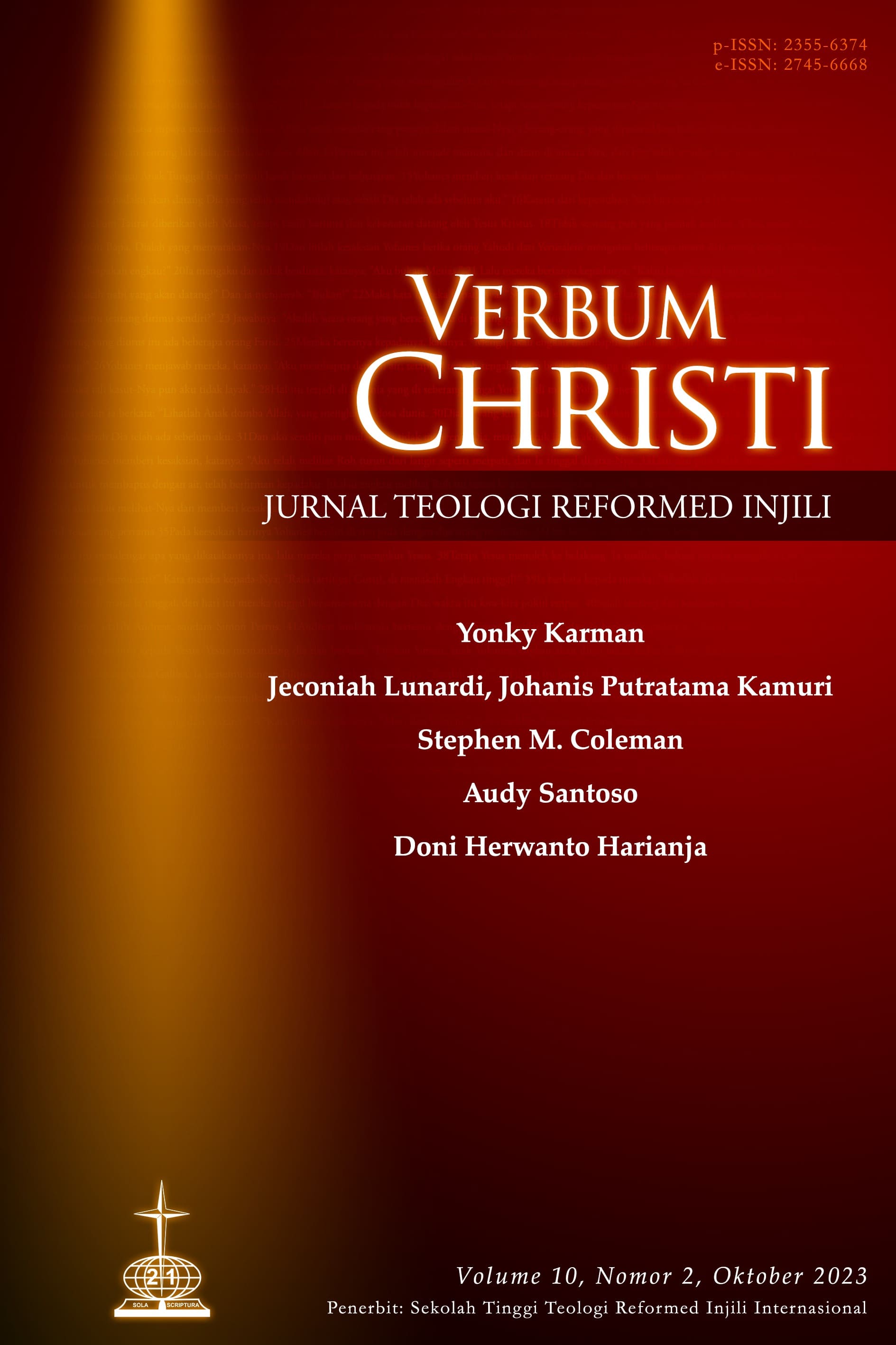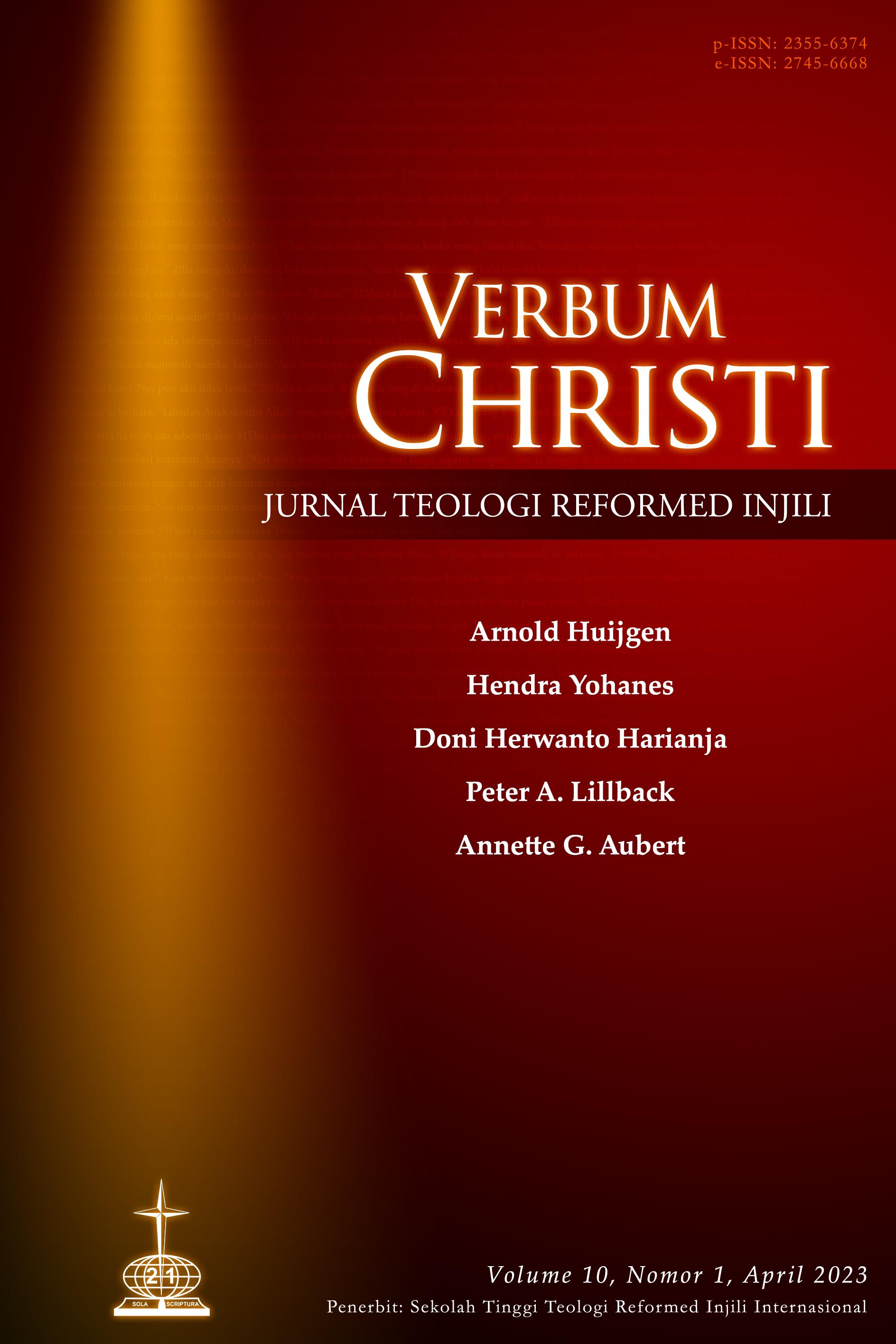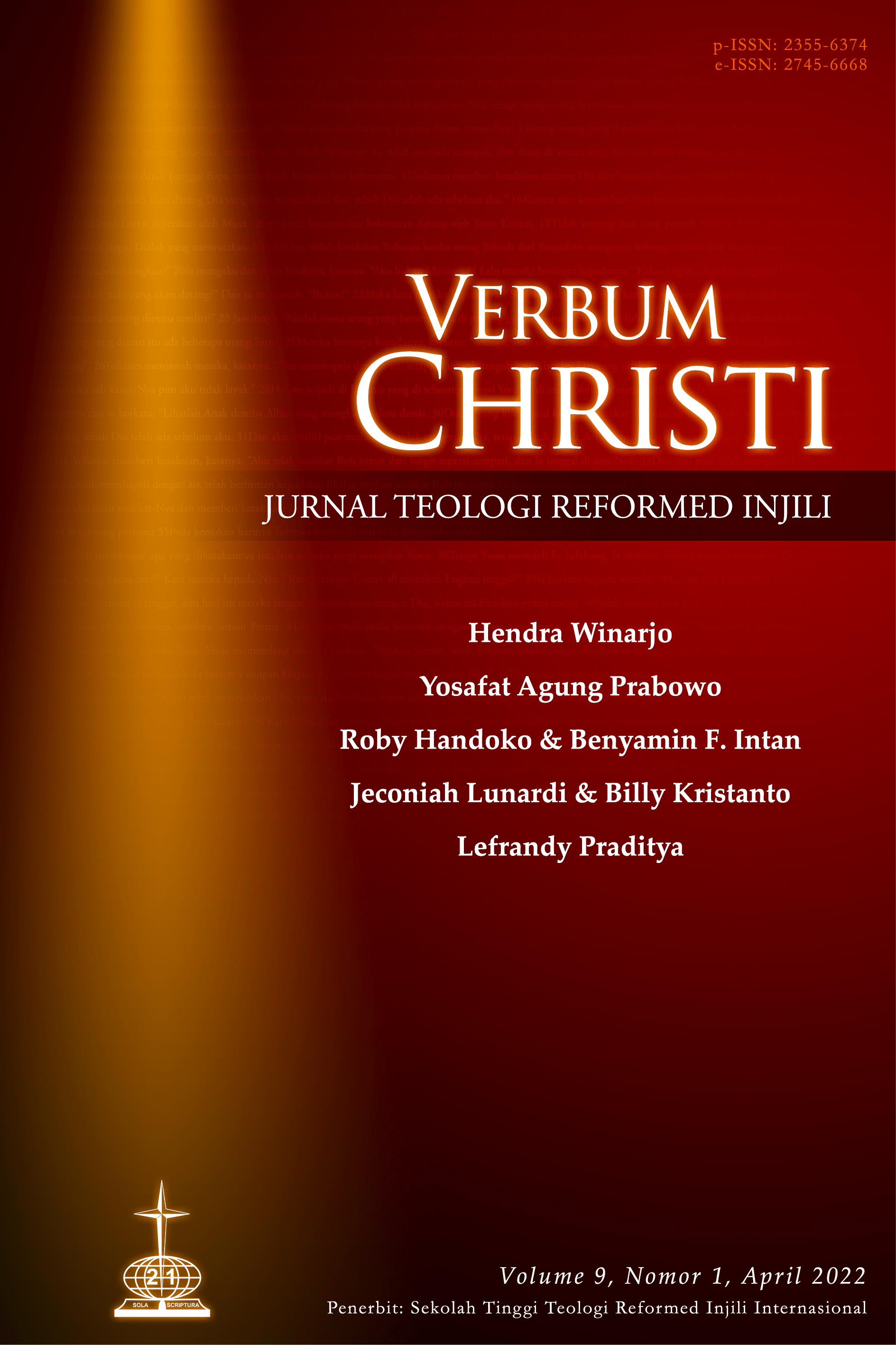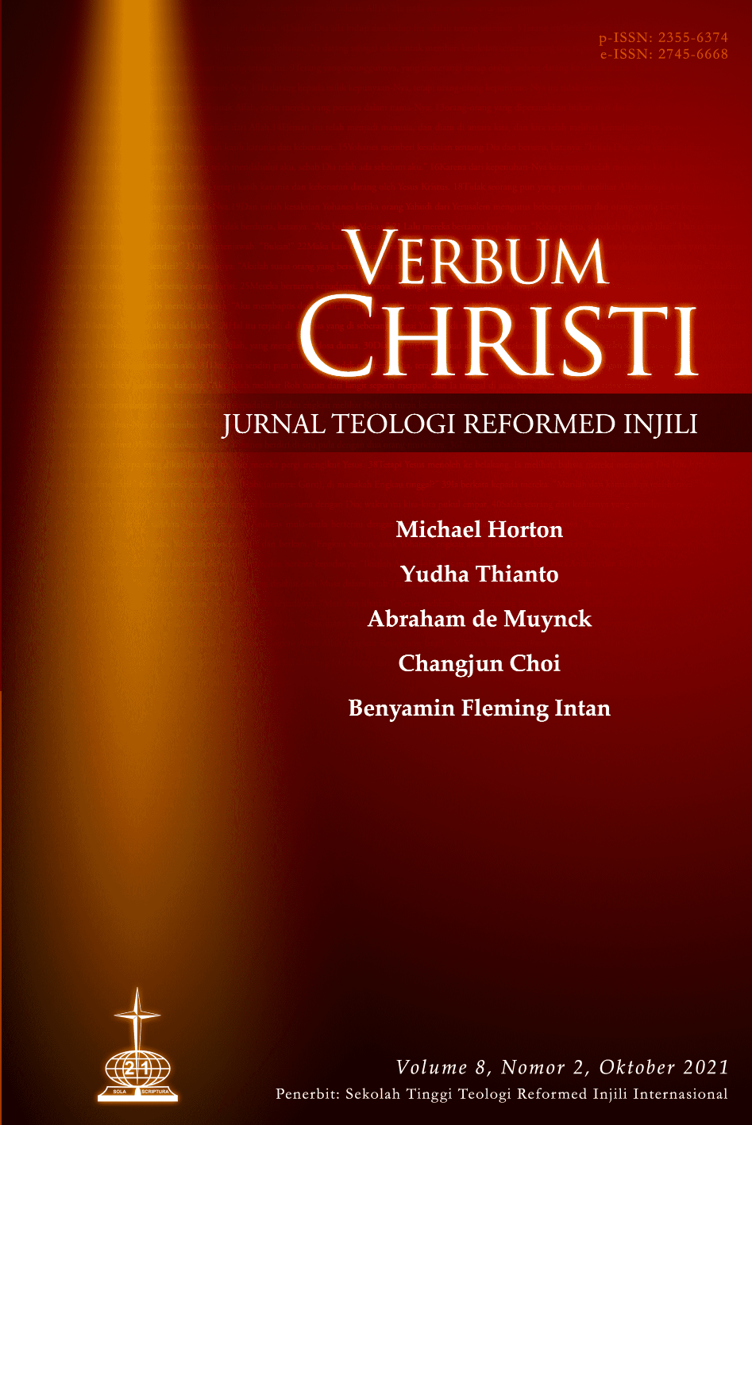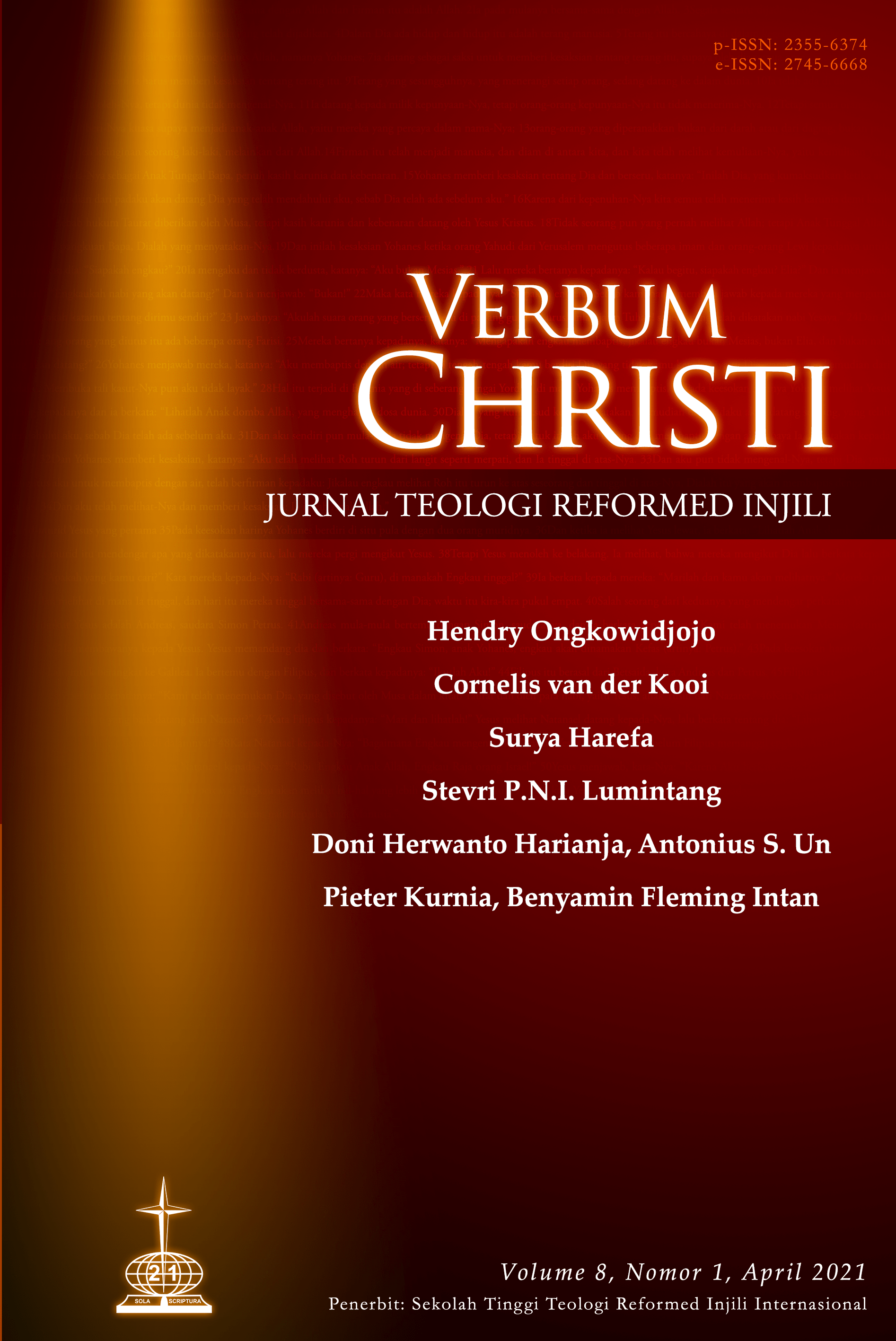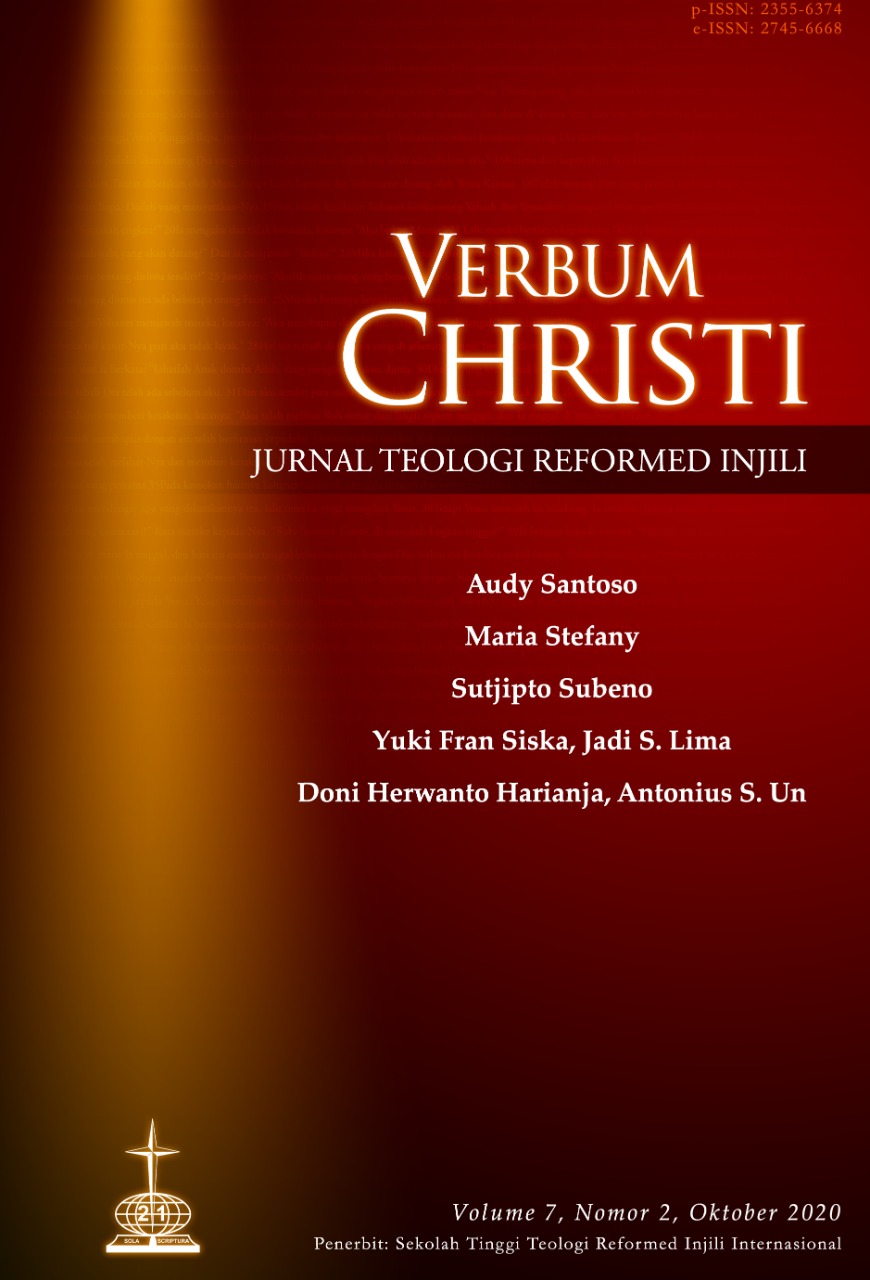Archives
-
In Progress
Vol. 12 No. 1 (2025) -
Current Issues in Reformed Evangelical Theology
Vol. 11 No. 2 (2024)Reformed theology rightly is drawn not just from Scriptural statements but also “what may be truly and certainly proved” from them. But what is the status of proofs (or logical consequences) from Scripture? And how many “consequences” can we take beyond Scripture before they become speculative and are no longer “good” or “necessary”? Reformed and Evangelical theology needs to explore a clearer understanding and formulation of what precisely constitute “good and necessary consequences” of Scripture.
-
The Cross and The Great High Priest
Vol. 11 No. 1 (2024)A servant follows his master. Malchus, whose ear was cut off, followed the blind and deaf old high priest. The snake that is often depicted as Satan is an animal that does not have ears. Thus, the offspring of the serpent follow their father. When on the day of the resurrection of the Lord Jesus, these chief priests bribed the soldiers to lie about the events of the resurrection. Those fluent in the Torah violate the Torah, which clearly says that bribery blinds the eyes of those who see or are wise. One of the characteristics of those of us who serve the true high priest is the use of our ears. Christ said that the ears that hear are blessed.
-
What is Good Theology?
Vol. 10 No. 2 (2023)Michael Welker describes nine levels that constitute theological normativity and weight so that theology can be called theology. Inspired by it, the author wants to share what makes a theology a good theology. The author explains seven aspects to be considered in developing a fruitful theology.
-
The Image of God: Between Us and Them
Vol. 10 No. 1 (2023)A Christian's acknowledgment that God's image is also found in others is a Christian political hospitality. Because it is political, Christian hospitality does not promote the mentality of us and those where we are identified as victims and those who are labeled oppressors. Many scholars have identified this mentality as the root cause of various social pathologies such as colonialism, war, to identity politics which political demagogues and buzzers have amplified. Our problem may not lie in our ability to differentiate between us and them because this mentality is inherent. However, we—as the image of God—may have failed, first and foremost, to love.
-
Perception of History and Historical Theology
Vol. 9 No. 2 (2022)From the perspective of historical theology, the perception of history is an example of the importance of studying history. Narratives that are widely circulated and believed by many people do not necessarily have historical facts. Research to find and carefully examine historical facts can make one revise previously held perceptions of history. Historical theology research is no less important in the theology field than other branches of theology, such as biblical, systematics, and practical theology. From research on concepts, events, and characters in church history, Christians and the church today can understand the causes of various mistakes that have occurred in the past so that they can avoid making similar mistakes. In addition, we can also strive to develop Christian teachings and practices that are faithful to the Bible to answer the challenges of the times. Although not all of them fall into the category of historical theology, the articles in this edition are examples of efforts to explore theology and theological methods using a historical theological approach.
-
About This Volume
Vol. 9 No. 1 (2022)Theology has a task to serve the faith accountability in discourse that places it in an applicative relationship with a cultural mandate, the politics and society development, and the good and beneficial ecumenical dialogue.
-
Allah yang Tak Terselami
Vol. 8 No. 2 (2021)Pengenalan akan Allah memengaruhi seseorang hidup di dalam penyembahannya. Israel yang menyembah anak lembu emas, sebelumnya hidup di dalam kemegahan yang fana dengan memakai perhiasan-perhiasan (Kel. 33:6). Bagaimana seharusnya kita hidup merefleksikan pengenalan akan Allah yang melewatkan kegemilangan-Nya kepada Musa? Disinilah kita mengerti apa artinya kebaikan TUHAN. Kebaikan yang bukan bersifat menetap melainkan yang lewat/transient/ passing. Kemuliaan TUHAN yang adalah kebaikan harus bersifat transient di dunia yang fana ini, jika tidak kemuliaan tersebut akan menghanguskan seluruh ciptaan ini. Demikianlah kebaikan yang orang Kristen hidupi di dunia ini. Impresi pada orang yang menerima kebaikan pun harus bersifat transient. Di dalam melakukan kebaikan yang transient inilah, kita mengikuti jejak kebaikan Tuhan yang telah dinyatakan kepada kita. Semoga di tengah pandemi yang kita harapkan berlalu, nafas kehidupan kita yang transient boleh menjadi passing goodness bagi orang lain. Kehidupan Yesus di dunia ini begitu cepat berlalu, hanya tiga puluh tiga dan setengah tahun dilaluinya. Namun Yesus meninggalkan kalimat terakhir yang menguatkan para murid dan kita di percakapan terakhir-Nya: Ego Vici Mundum/ Aku telah mengalahkan dunia (Yoh 16:33).
-
Sunat dan Penamaan Yesus di Hari Kedelapan
Vol. 8 No. 1 (2021)Maka sesungguhnya manusia belum memiliki identitas di hadapan Tuhan sampai ia diberikan nama. Maka penyunatan dan penamaan memiliki sifat nubuatan yang baru digenapi oleh Yesus yang menjadi identitas sejati akan siapakah manusia, setelah penantian panjang akan keturunan
perempuan, keturunan Abraham, dan keturunan Daud. Hanya mereka yang di dalam Kristus-lah yang akan memiliki identitas sejati, nama baru yang Tuhan berikan (Why. 3:17). Nama kita masing-masing belum final sampai kita disempurnakan seperti Kristus. -
Great is Thy Faithfulness
Vol. 7 No. 2 (2020)Kebaikan Tuhan yang kita terima setiap hari sudah sepatutnya membawa kita kepada kehidupan bersyukur, termasuk di pada masa pandemi. Saat begitu sulit menimpa seluruh penduduk dunia, kebaikan tetap kita terima karena berasal dari tangan Allah yang memelihara. Pujian Yeremia di tengah-tengah ratapan menjadi satu pujian yang demikian meninggikan Tuhan. Tuhan bukan hanya bertakhta di Israel. Tuhan yang sejati juga bertakhta bersama umatNya yang terbuang. Suatu pujian memiliki karakter kekekalan yang melintasi zaman ke zaman. Pujian yang muncul puluhan, ratusan, bahkan ribuan tahun yang lampau memiliki keberlangsungan yang everlasting ketika dinyanyikan dari zaman ke zaman. Allah yang ditinggikan diatas pujian menyatakan suatu fakta bahwa dia adalah Allah yang bertakhta secara kekal dari zaman ke zaman untuk selamanya.
-
Verbum Christi
Vol. 7 No. 1 (2020) -
Verbum Christi
Vol. 6 No. 2 (2019) -
Verbum Christi
Vol. 6 No. 1 (2019) -
Verbum Christi
Vol. 5 No. 2 (2018) -
Verbum Christi
Vol. 5 No. 1 (2018) -
Verbum Christi
Vol. 4 No. 2 (2017) -
Verbum Christi
Vol. 4 No. 1 (2017) -
Verbum Christi
Vol. 3 No. 2 (2016) -
Verbum Christi
Vol. 3 No. 1 (2016) -
Verbum Christi
Vol. 2 No. 2 (2015) -
Verbum Christi
Vol. 2 No. 1 (2015) -
Verbum Christi
Vol. 1 No. 2 (2014) -
Verbum Christi
Vol. 1 No. 1 (2014)

